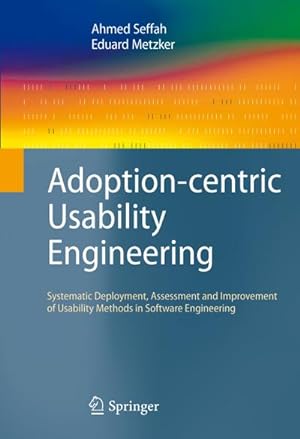When should usability techniques be considered during the software development lifecycle in order to create a user-friendly software program? This book provides an integrative answer by proposing adoption-centric usability engineering (ACUE), a systematic process for the adoption, assessment, and deployment of usability engineering methods. As part of the process, a context profile is developed, which encodes human factors that contributed to acceptance or rejection of usability methods in past projects. This context-sensitive description of usability engineering is called a USEPack (Usability Engineering Experience Package). Written for software developers, managers, educators, and graduate-level students, this book provides a complete, step-by-step approach for cost-effective integration of usability engineering methods into the software development lifecycle.
Developing easy to use software systems which also increase productivity, performance and satisfaction to users is still one of major challenges faced by software engineers.
In providing a new perspective on the integration and adoption of usability engineering methods by software development teams, this book demonstrates that usability engineering methods can only be integrated in the software development process when they are fully adopted by the project teams. The authors present an adoption centric usability engineering approach that consists of a process meta-model for guiding project teams in the deployment of usability engineering methods and provide a framework for measuring the acceptance of the deployed methods.
Software developers, managers and educators from both academia and industry will find this comprehensible, step-by-step approach to integrating usability engineering methods in the software development lifecycle a useful guide in extending and improving on methodologies, and complementary to existing software development strategies.
